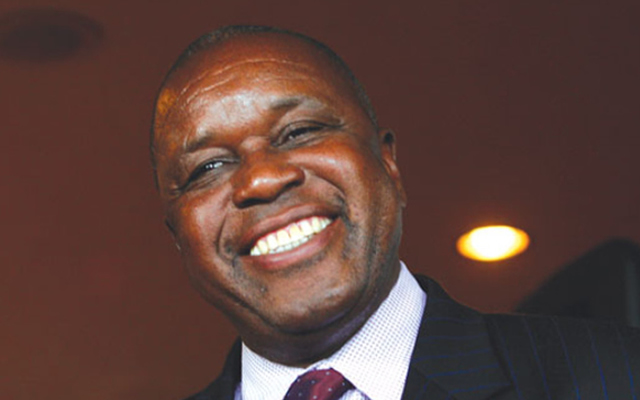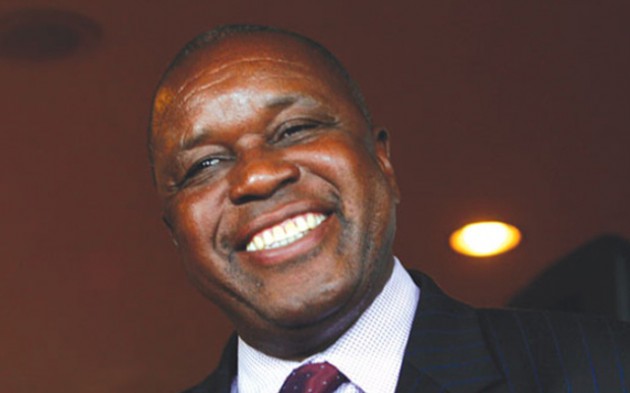‘We’re alert, vigilant in crisis moments’

CDE Christopher Mutsvangwa is the new Zimbabwe National Liberation War Veterans Association national chairman after being recently voted into office. He takes over from Jabulani Sibanda who was recently expelled from Zanu-PF. Our Senior Reporter Lovemore Ranga Mataire (RM) spoke to Cde Mutsvangwa (CM) about his vision for the association and other issues affecting ZANU PF and the nation.
LM: Cde Mutsvangwa, congratulations on being elected the new war veterans’ leader. But why have you waited for 34 years to present yourself for the leadership of the organisation?
CM: I was drafted literary into the chairmanship by the overwhelming support of my fellow comrades. That means my comrades called upon me; they said they wanted me to be chairperson, because they are comrades from the trenches. And they are comrades who are the tradition who never made it back home; I had to respond because there is no single aspect of my relationship today which is more valuable beyond that of family and my wife to that of the comrades.
LM: What difference will be your leadership compared to that of your predecessors?
CM: We want the organisation to be structured. It literally operated out of somebody’s pocket, no minutes, no offices, no periodic seeking of the mandate by the leader, no attempt at building resource capacity because it operated at the whims of an individual. That way they become vulnerable to mercenary forces and his succumbing to factional forces means that he who paid the piper was now calling the tune.
LM: How did you find the house left by Cde Jabulani Sibanda?
CM: There is nothing that I found. I can’t even go to an office, I have no minutes to look back to, it’s like starting from scratch and this is sad because if there is one thing that war veterans are famous for, it is organisation. You don’t fight and win against the Rhodesian army, which is an expression of the foremost military imperial power of the time, unless you are organised. We organised every villager, every hamlet, every town and every school to win. So organisation and decision-making run in the blood of war veterans.
LM: But why were things left for that long like that in the war veterans association?
CM: There may not have been compelling challenges and so now the challenges have come up because the cohesiveness of the party is under challenge. Each solution is a response to a particular challenge.
LM: What is your comment on the current problems in the party particularly the issue of factionalism?
CM: We support the resolutions, decisions of the party as enunciated by the 10 provinces with President as the sole candidate. We support and embrace the First Lady coming into the ranks of the party as the secretary of the Women’s League. We support that there should be no competing centres of power within the party. So just like the President appoints members of his Cabinet from elected parliamentarians he must also be given sole responsibility of choosing members of the Politburo after the elections of the Central Committee. The President must appoint his Vice President in accordance with the constitution because the constitution of the country is supreme. The legacy discrepancies coming out of the ZANU-PF constitution need to be aligned to the national constitution.
LM: Cde Mutsvangwa, you still have not answered my question. What is your position regarding factionalism in the party?
CM: I say Vice President don’t continue to hold hostage genuine members of the party who may have followed you under the mistaken notion that you have an autonomous and competing centre of power. Leave them, don’t continue to hold them at ransom. They are members of the party; give them the latitude to go back to the party. They are not yours, they belong to the party. I also say the same to those members who had been misled to believe that the Vice President has an autonomous power centre. In the party the leader is President Mugabe and because you are a war veteran Cde Vice President your patron is President Mugabe. Forget your political role and remember that you are a war veteran, pledge allegiance to him, listen to him and behave accordingly.
LM: Your comments on the plot to assassinate President Mugabe by some senior party leaders?
CM: It’s sad considering the people that are alleged to have been involved. Gumbo has always been like that. They are chancers coming from nowhere like Goche with Rhodesian pedigree. Goche was part of the Rhodesian security and intelligence apparatus until 1979 on the eve of the Lancaster House. He is a defector from the Rhodesian intelligence apparatus, maybe an infiltrator. Because of his defection he ended up at assembly point.
He went to Zambia saying he had money from Rhodesia and people accepted him because they thought he was genuine. He came back to Zimbabwe and the Rhodesians said he could not join the new government because he was a thief. So a law had to be passed in parliament, the first law ever to be passed by ZANU-PF soon after independence in 1980 was on the indemnification of anybody who had committed crime in the Rhodesian era. Goche stole money when he was working together with James Makamba. In his act of magnanimity, President Mugabe tasked the then Minister of Justice, Legal and Parliamentary Affairs to pass a law indemnifying all those who had committed crimes during the war and Goche benefited from that. Once he joined the new government, he rose phenomenally from being a diplomat, ambassador, Deputy Minister of Foreign Affairs and later the Minister of State Security. He held them all — sensitive ones.
LM: What about Cde Rugare Gumbo?
CM: Gumbo is a perennial rebel. We freed him from jail. Remember he was in jail when the war resumed in Mozambique in 1975 under the leadership of President Mugabe. Because of our war effort he was released from jail over the supposed assassination of Cde Chitepo. He comes to Mozambique and becomes part of the leadership and a few months down the line he again rebels against Mugabe and ends up in jail. So he has a dalliance with the most crucial. In part of the struggle and he never became part of it. And he comes back a rebel, joins Sithole and later readmitted and again he rebels.
LM: But what can be done to prevent these constant disruptive contradictions?
CM: The most important thing is ideological training which takes cognisant of the liberation struggle because then it makes it difficult for members of the party to follow errant leaders. If we start from an ideological training where we appreciate the history of the party we will not follow ambitious and errant leadership.
People are following because they don’t know the history of the party. Now they discover that these people are plotting against the President. Suddenly people are aware and because they love their party and their President they are now disassociating themselves from these factional leaders.
LM: In other words you are calling for a rigorous formal orientation?
CM: Yes, continuous formal ideological orientation. It’s done everywhere. In America the first thing a child knows is that I belong to the Republic and the first thing that an American soldier knows is that the army of George Washington is sacrosanct. You pledge allegiance to the American flag so it’s not something that is peculiar, it’s done all over the world.
LM: Do you think ZANU PF will emerge stronger after congress?
CM: Well, before the congress the party is already stronger. Remember the congress is a platform for the President to enunciate the new direction of the party. So we are already sorting out the obstacles along the way. We are reasserting the supremacy of the party through its elected leader President Mugabe and by the time we get to congress all that will be aligned. The party would be aligned to the leader and he will be given a platform to enunciate under ZIM-ASSET a new economic chapter that will deliver economic prosperity long sought by Zimbabweans and satisfy the aspirations of an expectant educated youth.
LM: And, Cde Mutsvangwa, what can you say about the welfare of war veterans because it has been said that the material well-being of war veterans leaves a lot to be desired?
CM: It’s very sad. I know that the Zimbabwean population does not want its war heroes to be treated like that. We will work very hard to make sure that the pensions and welfare system rises to the challenge of the plight of the war veterans; the widows of the veterans and the orphans of the war veterans. We look for a new compact with business and banks to see how they can support economic and business initiatives by the war veterans.
We will work with Ministries like the Ministry of Health to ensure that the diseases and other post-war trauma that have been neglected can now find address. We will build a data bank of all war veterans including their dependants, orphans and widows so that we can tailor make solutions to their circumstances.
LM: What about accusations that war veterans only become visible in crisis moments?
CM: We are alert to crisis movements and that shows that we retain our vigilance. We have a unique appreciation of the threats against Zimbabwe because we bore the pain of the war and we will not shirk out when the crisis arises. What we will be happy about is for Zimbabweans to be properly taught so that they assume their proper responsibility so that these moments of crisis never arise and we are very confident that we will eventually reach there.











Comments